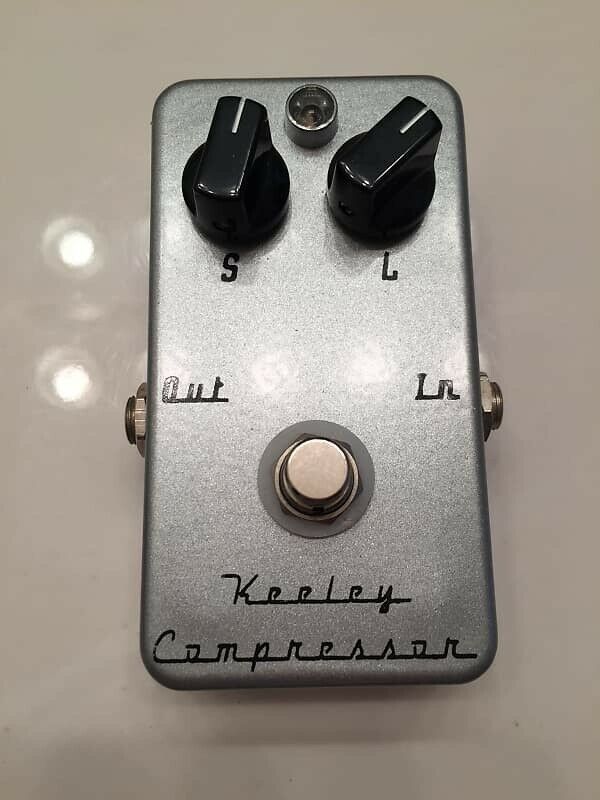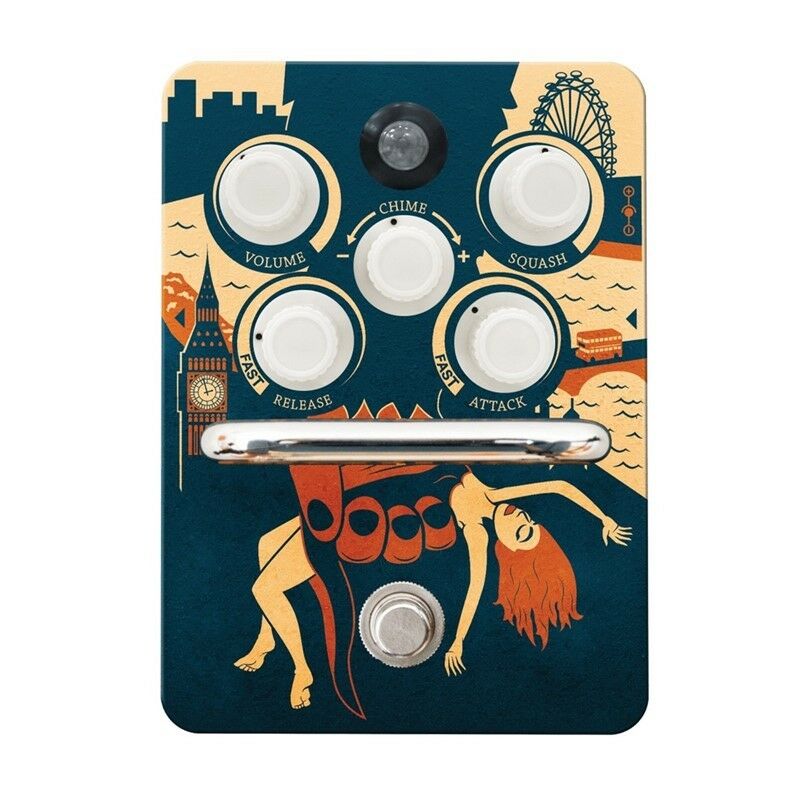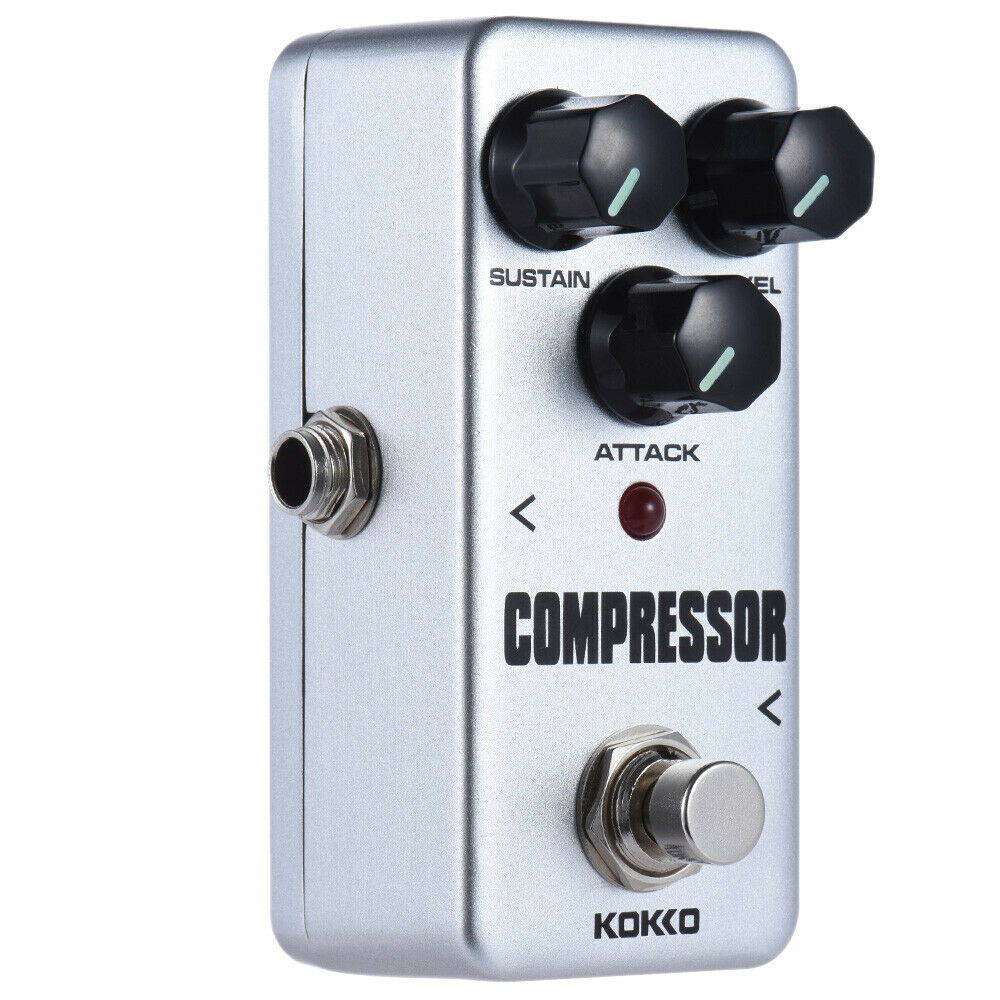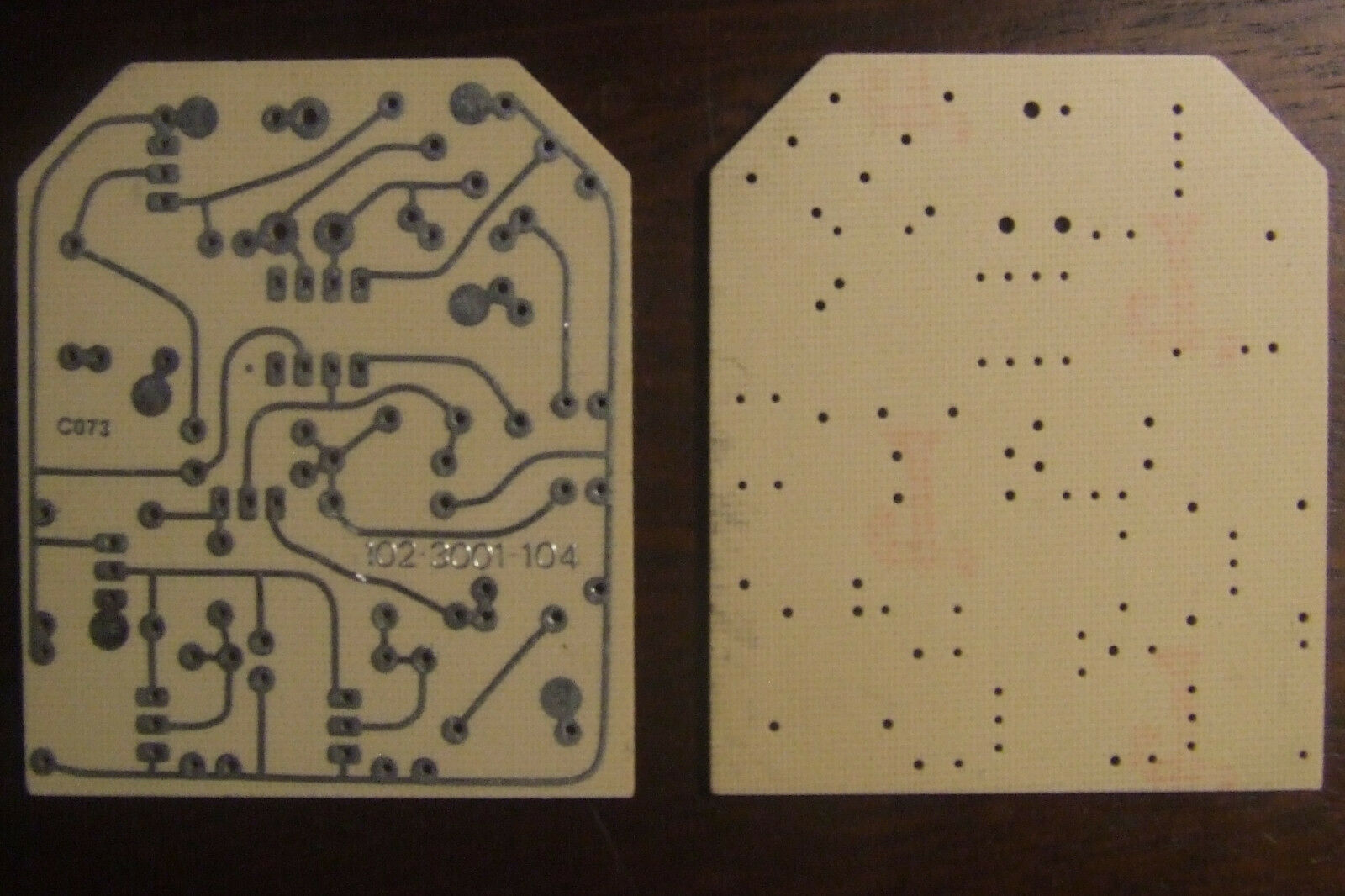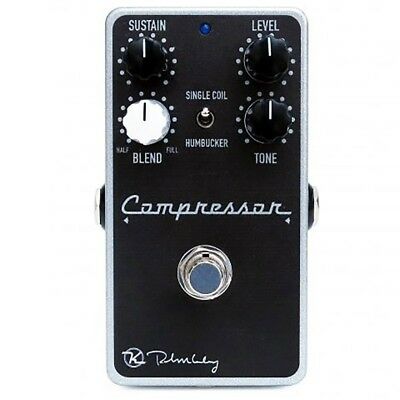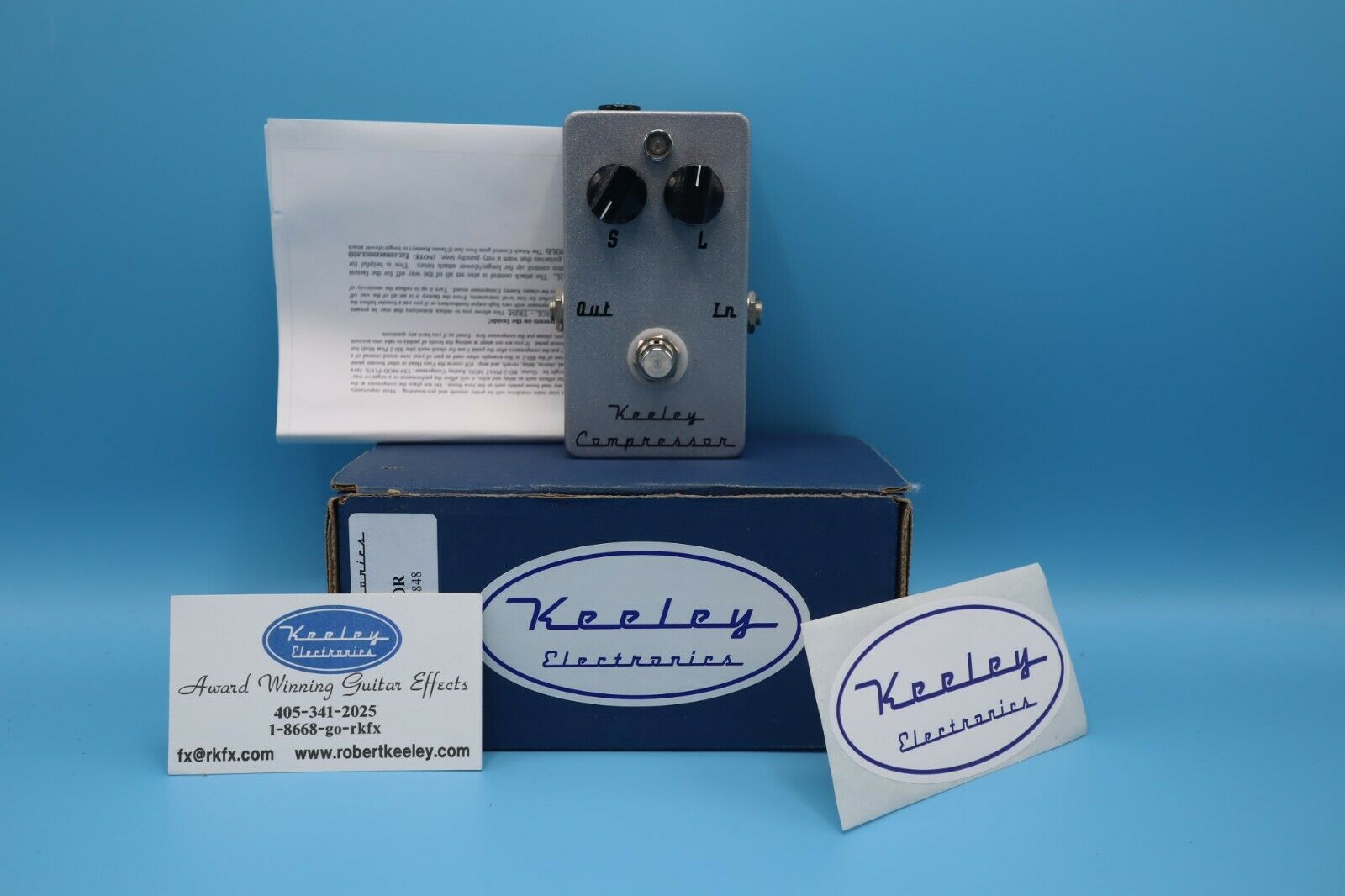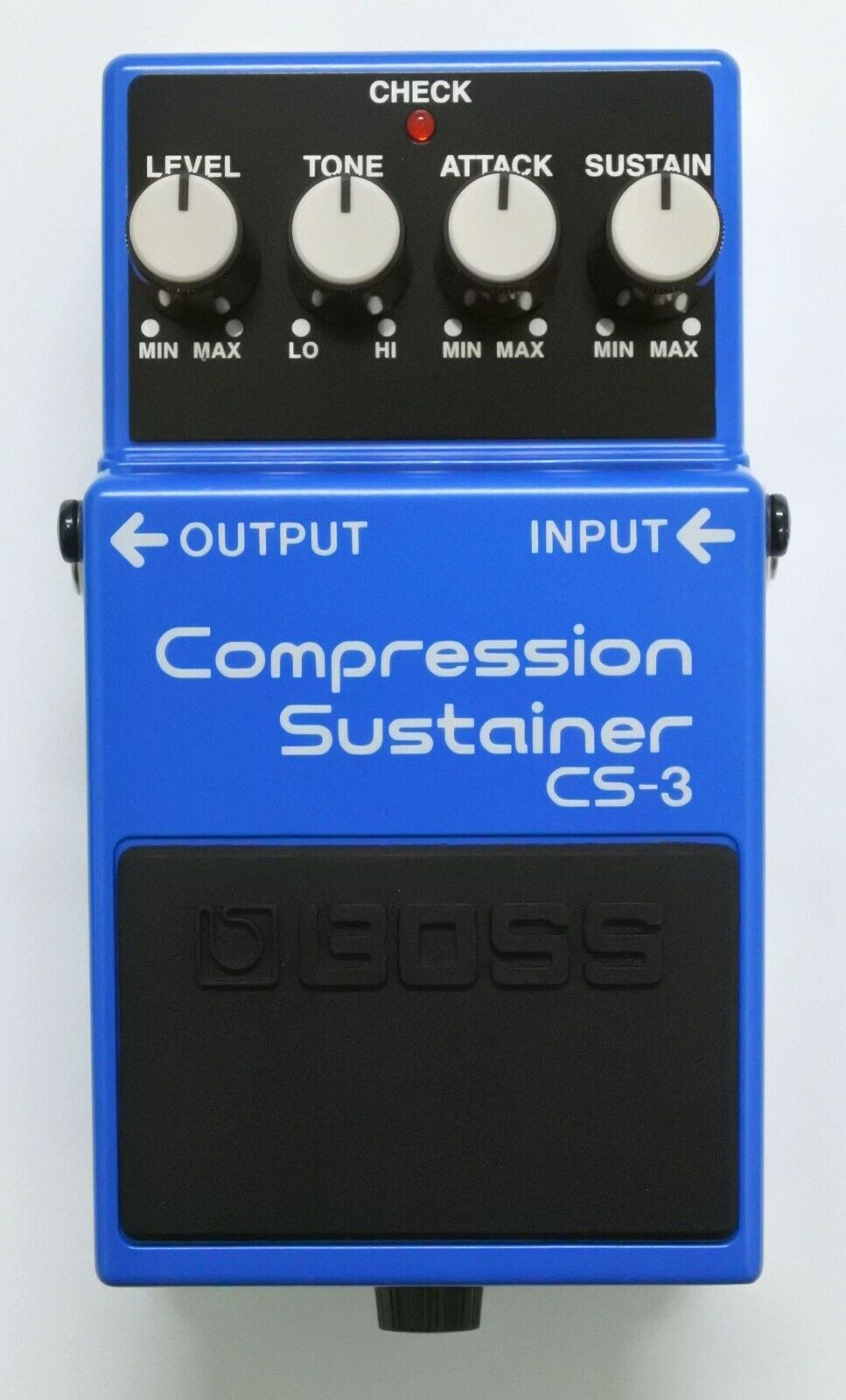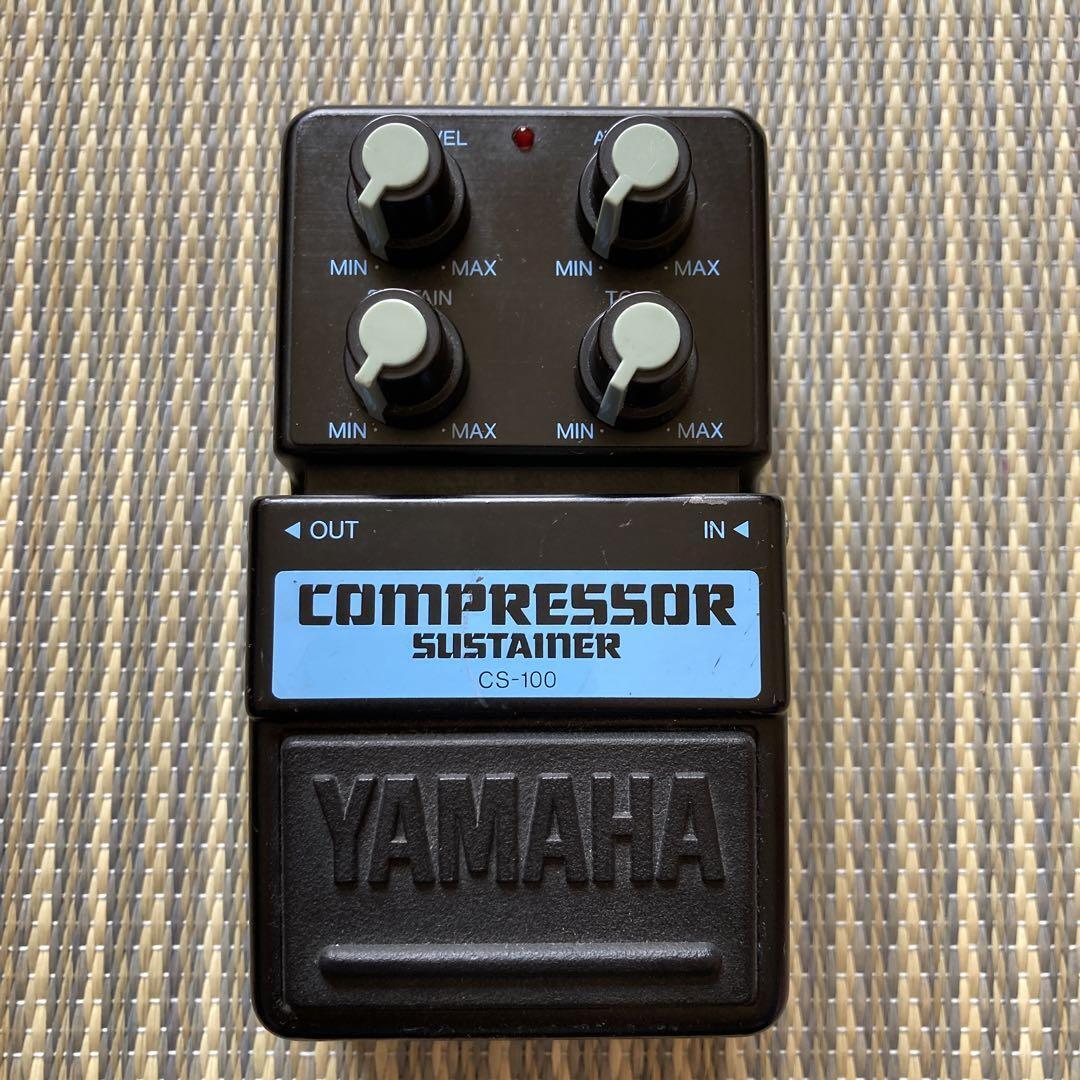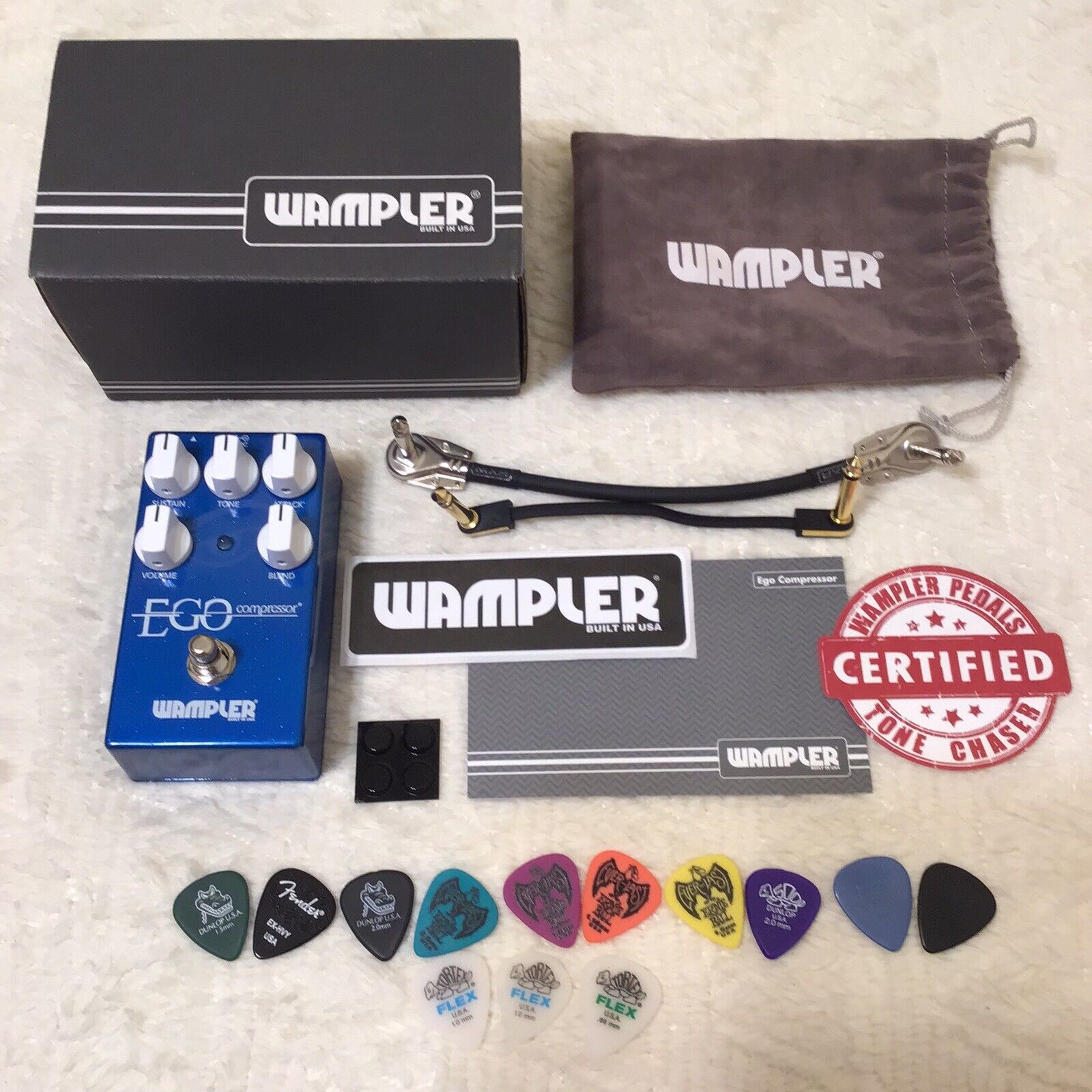-40%
Robert Keeley CS2 two knob compressor
$ 89.23
- Description
- Size Guide
Description
New Old Stock Robert Keeley CS-2 two knob compressor.For new players with developing ears, compressors often have a mysterious quality about them, since they don't do anything drastic to your sound. For veteran players, the subject of compressors is often a dividing one. For some styles, though, compression is almost necessary. For snappy funk and chicken pickin' country, a compressor is a defining element of the tone. Even the emerging djent genre uses a compressor to tight up the bass attack. Even if you don't play in these styles, having a good compressor on your board opens up a lot of possibilities, even you're happy with the way your rig sounds. And the Keeley Compressor is good. Very, very good.
If you're unsure exactly what a compressor does, think of it like one of those extendable leashes on an eager dog. Or a volume cop. Basically, it puts a limit or threshold on how loud your signal can get. If it crosses that line, it pulls the signal's volume back a bit. For quick lines, this adds a feeling of precision (see earlier reference to funk and country). For big rock sounds, limiting the signal can add crunch that makes distortion feel like it's washing over you rather than assaulting you. Compressors can also do this trick in reverse. As the volume falls below a certain threshold when a note or chord is decaying as you hold it, a compressor can increase the volume to sustain it longer. That's why pedals in this category are often called compressor/sustainers. David Gilmour was known for his use of the sustaining aspect of compressors to give his lead lines a soaring effect (think of his solos from Time, Comfortably Numb or Mother).
If David Gilmour annointed the MXR Dyna Comp as the compressor of choice throughout the '70s and '80s, the Keeley Compressor emerged as the contemporary choice when tone hound John Mayer, among others, started singing its praises. Eight-string master Charlie Hunter, Adrian Belew, Sonny Landreth, Zac Brown and Dave Weiner (of Steve Vai's touring band) are a few other current acolytes of the Keeley Comp. Why?
Transparency, subtlety and quiet operation. The Dyna Comp added its own color to your tone, an addition that most acknowledge as a flaw. Some people love this, but for others, this turns them off to the idea of using compressors. The extremely strict manufacturing standards and high-quality materials used in the Keeley Compressor, along with its circuit design, allow it to operate on a very nuanced level. Most ears would hear a rig running a Keeley and think that there was no compressor involved at all. It makes the signal tighter and cleaner, more delicious you might say, without giving itself away. Dynamics and tactile response still come through, which is often a complaint against comps for players who view their hands as the core of their tone.
If you've never used a compressor before, you won't know whether it's something you want on your board until you try one. We would argue, maybe counterintuitively, that a Keeley Compressor is a good place to start since it isn't as divisive as some of the more bold compressors out there. If you don't like what the Keeley does to your tone, then you most likely aren't the type of player who would be interested in compressors in general. Here's a neat little test if you're a Strat player: Put the pickup selector at the 2 "quack tone" position and run it through a Keeley Compressor. Let's talk afterward.
How does the Keeley Compressor differ from other iconic compressors like the Ross Compressor or the Boss CS-2?
The Keeley Compressor was actually intended to be a Ross Compressor clone. The only difference is that Robert Keeley used metal film capacitors instead of ceramic to give it a less-harsh, quieter operation. In many other ways, however, the pedals are very similar.
The Boss CS-2 is a little less subtle than the Keeley, and is a perennial favorite of chicken pickers who use it on the bridge pickup of their Telecasters. While the Boss is rugged, its transistors are not as precisely matched, and it does not use metal film capacitors. It's less known for transparency and regarded more for its signature warmth.
